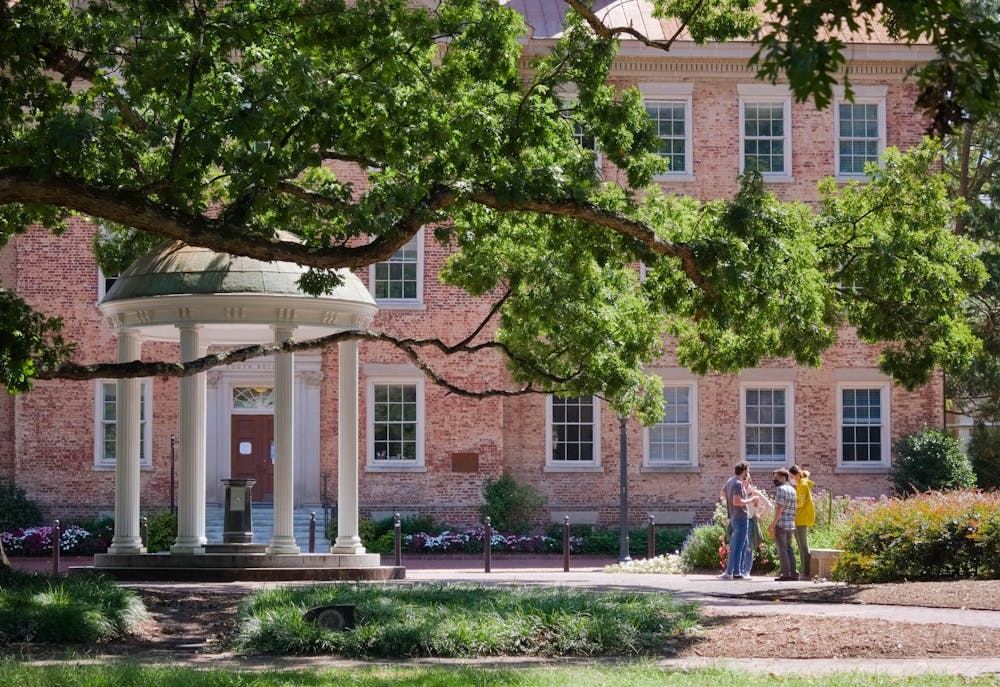“We advance the educational benefits of diversity by encouraging people to join us. Once they apply, we try to consider them one by one,” Farmer said. “It’s putting together that complex human community that helps the university advance and achieve the educational benefits we’re trying to provide to its students.”
Jennifer Kretchmar, associate director for research in the Office of Undergraduate Admissions, said during the trial that race is but one factor considered in the application process.
The Office of Undergraduate Admissions also looks at factors of an applicant’s file, such as test scores, rigor of high school classes, first-generation status, socioeconomic status, extracurriculars and legacy status.
Farmer said though a student’s race and ethnicity may be significant in an individual case, they are always viewed in consideration with other factors.
While UNC looks at many different criteria and boasts a holistic review process, the Advisory Committee on Undergraduate Admissions reported that 55.7 percent of incoming first-year students in the fall class of 2019 were white.
Additionally, for the same class, 12.3 percent of incoming first-years were Asian American, 9 percent were Hispanic/Latinx and 8.9 percent were Black/African American. First-generation students made up 18.9 percent of the class, while 17.7 percent of students had legacy status, including both in-state and out-of-state applicants.
Arguments for race-neutral admissions processes
Edward Blum, the president for SFFA, has a lengthy history of involvement in dozens of lawsuits against affirmative action and voting rights legislation, according to The New York Times.
Blum previously told the DTH that his organization has been met with a great deal of resistance, and that he hopes the courts will compel UNC to implement race-neutral alternatives in its admissions process.
Since the lawsuit was filed six years ago, UNC formed a committee to explore the possibility of race-neutral options in the admissions process, but the committee concluded in its report that there were no race neutral options that would maintain the level of diversity at the University. But SFFA claims that UNC could increase the utilization of non-race-based criteria, like socioeconomic status, to promote diversity in its admitted student body.
SFFA also took issue with one of UNC’s diversity goals to achieve the “critical masses of underrepresented populations necessary to ensure the educational benefits of diversity” for faculty, students and staff.
According to a 2012 resolution letter from the U.S. Department’s Office for Civil Rights to former UNC Chancellor Holden Thorp, the idea of critical mass was acknowledged by the Supreme Court as being necessary to ensure underrepresented minority students do not feel isolated or like “spokespersons for their race,” as well as to dispel stereotypes about minority groups.
To get the day's news and headlines in your inbox each morning, sign up for our email newsletters.
The letter also said that non-racial diversity factors could be included in the goal of achieving a critical mass.
However, the SFFA complaint alleges that the critical mass diversity objective has led to the allowance of racial admission preferences, so much so that race becomes a "defining feature" of an application.
What’s next?
The trial is expected to conclude on Nov. 20.
In a campus-wide email sent on Nov. 6, Chancellor Kevin Guskiewicz expressed that UNC does not use quotas or formulas in admissions.
“As a faculty member over the past 25 years, I know that every student rightfully earned their place at Carolina,” he wrote. “We welcome these students to a community that is committed to pursuing the educational benefits of diversity as a core part of our educational mission.”
In an effort to increase outreach to potential applicants, UNC has created programs like the Carolina Covenant, an aid program aimed at providing low-income students the opportunity to graduate debt-free; Carolina College Advising Corps, which places college advisors in high schools across North Carolina; and C-STEP, which partners with community colleges in North Carolina to admit more transfer students to the University.
"As we said when the plan was launched, this initiative is foundational; none of the other initiatives will work if we do not get this one right. While we have made strides in diversity, inclusion and belonging in recent years, there is still much work to be done," Guskiewicz said in the campus email.
university@dailytarheel.com




